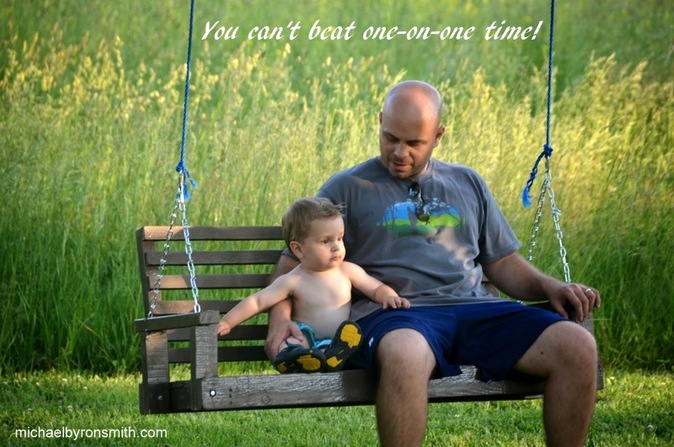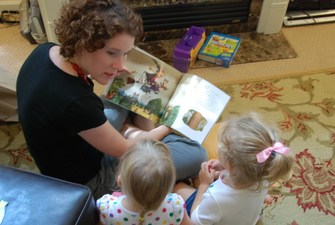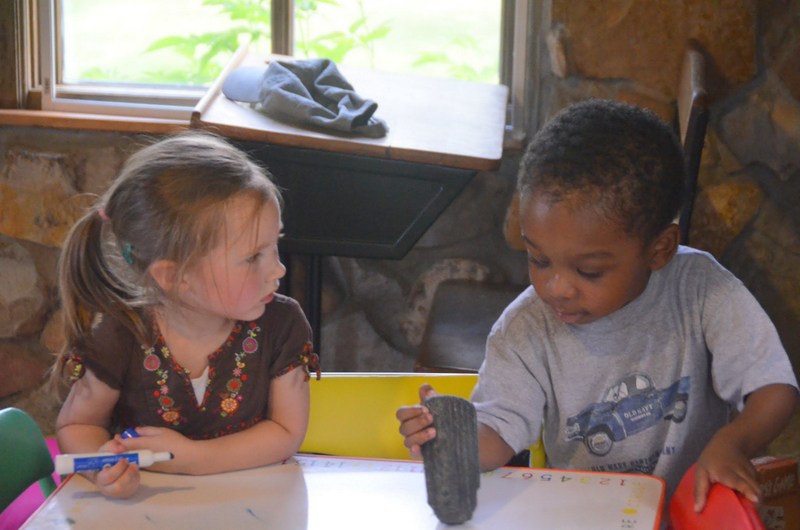 Talk to your children! Photo by author
Talk to your children! Photo by author What could it be? What could be so dangerous and hurtful yet is also an undeniably powerful force for good in the world. In the context of global warfare, it could be a stealth bomber or even a nuclear bomb--so lethal that their mere presence keeps the peace, given they are in the right hands. That is logic with which you can agree or disagree, but in the world of raising children, there is something else that can be just as destructive yet also a powerful force. And with this, I think you will agree. That something is ‘Your Words’.
Mental Well Being
How a parent talks to his children can make or break them. It’s not just the words, it’s the context of the words, the tone of the words, and the look in your eyes when you say them. “Encouragement” sounds like a positive word and it is if the result causes a child to do good for themselves or others. But kids have been encouraged to do things that can destroy. A child can also hear positive words told in a sarcastic voice or with an angry look. Kids, like adults, take in the entire presentation of what you say to them.
To say kids are impressionable is obvious. What is not obvious to many parents is the recognition or awareness of that fact, especially when they, the parents, are angry. Words can cut deep but their scars do not show, at least not in a direct way. There is no doubt that parents can cause deep psychological scars but hopefully the most serious instances of this are rare. But this lesson in words is not just about the obvious injustices. It’s about the more subtle impacts of words too.
Normal Growth
Constantly talking to your kids allows them to have a better vocabulary, to have more curiosity in life and things, and to learn at a faster pace. A study from Rice University shows that “a child from a high-income family will experience 30 million more words within the first four years of life than a child from a low-income family…and 125,000 more words of discouragement than encouragement. When compared to the 560,000 more words of praise as opposed to discouragement that a child from a high-income family will receive, this disparity is extraordinarily vast.”
Let me say that again. Some kids hear an average of 30,000,000 more words in their first four years than those less fortunate. Low income kids hear 125,000 more words of discouragement than encouragement. High income kids hear the opposite, 560,000 more words of encouragement than discouragement. These statistics are astounding to me! They tell a story which will continue in perpetuity unless some societal change takes place. This will be difficult, but it can be changed immediately by concerned families. Not just low income families, but any family that does not engage more often with their children for some crazy reason.
High income people are typically better educated and are more likely to emphasize education and social activity. Low income people will be less likely to do either, but very importantly, they are much more likely to only have one parent in the home. When only one parent lives with a child, there are so many words that will never be heard from the missing parent. Of course, they possibly could have been discouraging words, but more likely, the encouraging words your child should be hearing are missing.
Certainly there are low income parents who are much better parents than some high income parents. The figures mentioned above are just tendencies and the point is not income levels, but the habits of people that help children to thrive or to languish.
What to Do
Here is an exerpt from my book to help evaluate your parenting , written for Dads, but also for Moms!
A Dad’s Self-Inspection Checklist







